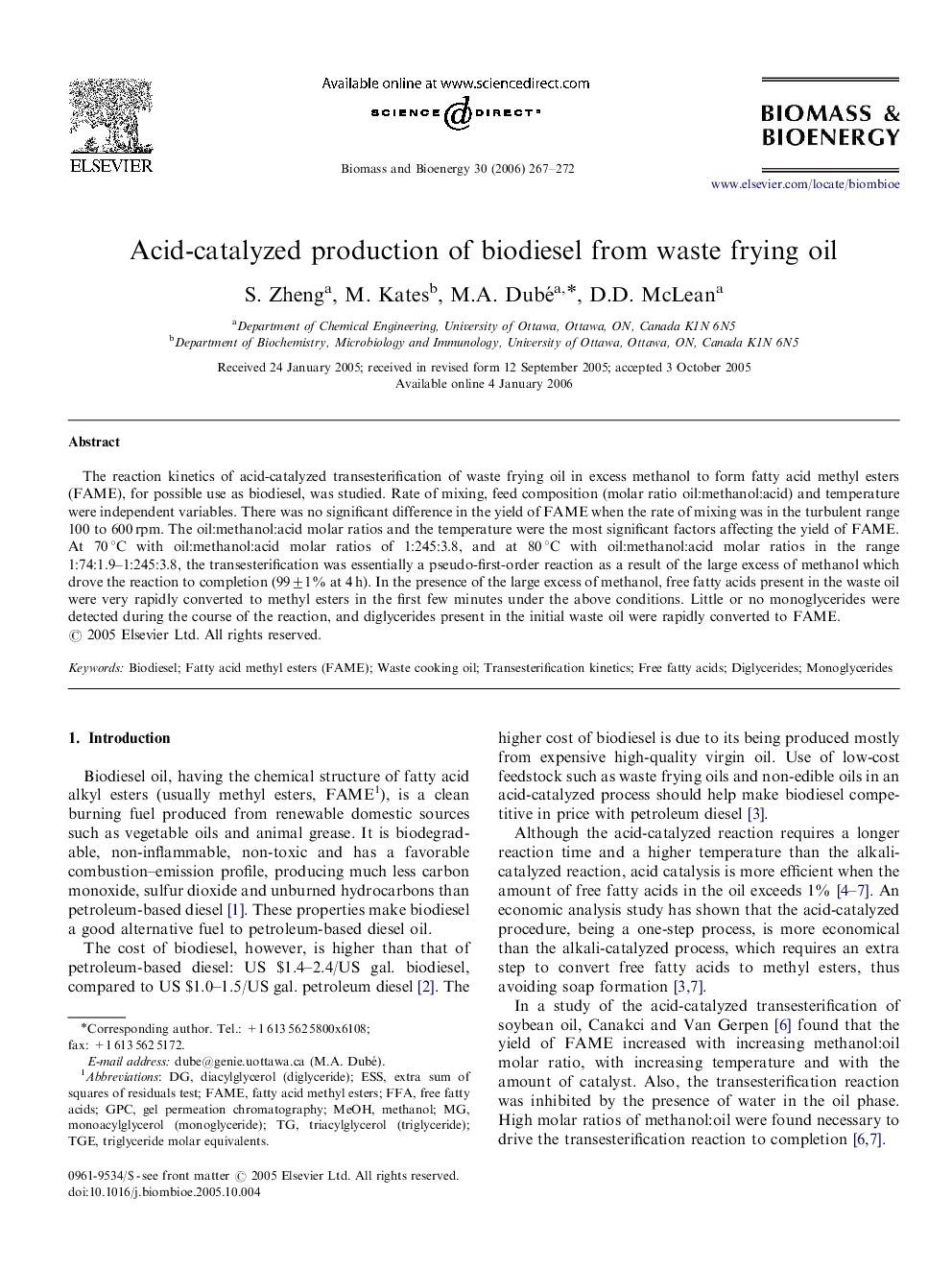| Article ID | Journal | Published Year | Pages | File Type |
|---|---|---|---|---|
| 678899 | Biomass and Bioenergy | 2006 | 6 Pages |
The reaction kinetics of acid-catalyzed transesterification of waste frying oil in excess methanol to form fatty acid methyl esters (FAME), for possible use as biodiesel, was studied. Rate of mixing, feed composition (molar ratio oil:methanol:acid) and temperature were independent variables. There was no significant difference in the yield of FAME when the rate of mixing was in the turbulent range 100 to 600 rpm. The oil:methanol:acid molar ratios and the temperature were the most significant factors affecting the yield of FAME. At 70 °C with oil:methanol:acid molar ratios of 1:245:3.8, and at 80 °C with oil:methanol:acid molar ratios in the range 1:74:1.9–1:245:3.8, the transesterification was essentially a pseudo-first-order reaction as a result of the large excess of methanol which drove the reaction to completion (99±1% at 4 h). In the presence of the large excess of methanol, free fatty acids present in the waste oil were very rapidly converted to methyl esters in the first few minutes under the above conditions. Little or no monoglycerides were detected during the course of the reaction, and diglycerides present in the initial waste oil were rapidly converted to FAME.
